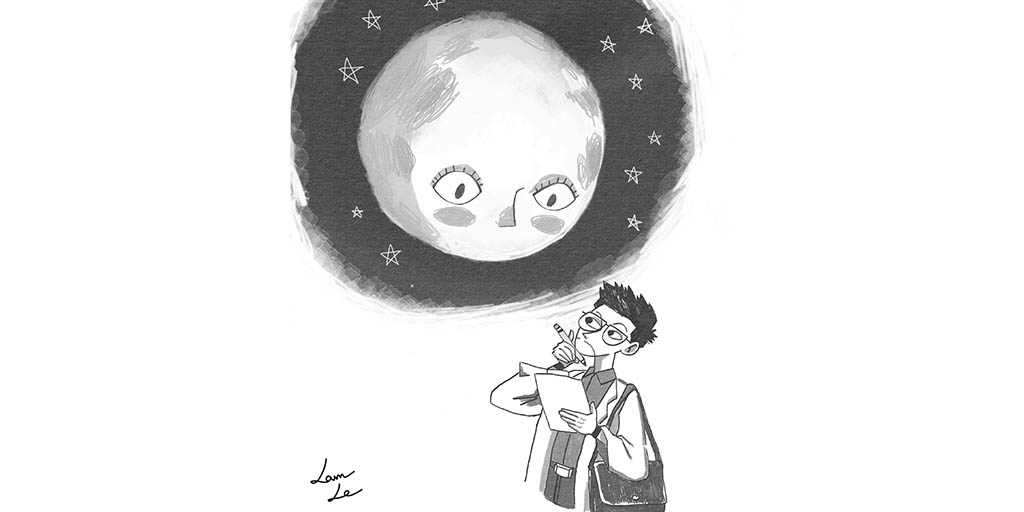The Lunar Effect: Fact or fiction?
 CREDIT: ILLUSTRATION BY JARED LE
CREDIT: ILLUSTRATION BY JARED LEA full moon can have different effects on people, whether it be good or bad.
Ever see something or someone acting out of the ordinary, only to hear the phrase “it must be a full moon out tonight”, used as reasoning to explain the strange going- ons? The idea that there may be a correlation between the monthly lunar cycles and the behaviour of people or animals is known as The Lunar Effect and it dates back many years. However, despite the number of people who swear by the effects of a lunar cycle, it remains more or less an unproven phenomenon to this day.
According to The Washington Post, some of the earliest mentioning's of this theory date back to ancient Greek and Roman philosophers who believed that the moon's effect on the waters in the ocean may have a similar effect to the water that makes up the human anatomy. The Roman moon goddess at the time was known as “Luna,” which led to the creation of the word “lunatic”, used to describe people deemed unstable due to the effects of the moon.
This idea of “lunacy” remained prevalent as the culture and world changed around it, but recent studies, according to John Roach in an article for The National Geographic, have yielded very little evidence of such a belief to be true.
Ivan Kelly is a passionate scholar of this subject who has done numerous studies on the history and science of The Lunar Effect. One of his most well-known papers on the topic is “Much Ado About the Full Moon: A Meta-Analysis of Lunar- Lunacy Research”, co-written with James Rotten. The study took into account many decades of past studies and surveys and concludes that “although this meta-analysis uncovered a few statistically significant relations between phases of the moon and behavior, it cannot be concluded that people behave any more (or less) strangely during one phase of the moon than another”.
So, if there is so little evidence supporting the idea of the lunar effect, why do so many professionals believe in the effects of the moon on the human psyche? Many suggest that it is simply a matter of selective memory in which people tend to only remember the cases of animals and humans acting out of the ordinary when there is a full moon and forget similar cases in other phases of the moon.
Kelly and Rotten go on to state that “unfortunately, the lunar hypothesis is so general that it can handle any result�However, psychologists need to take the topic seriously because, if for no other reason, so many people believe that their behavior is influenced by the moon”.
So, it would seem that despite the immense amount of research that's gone into it over the years and the many studies that oppose or support its existence, The Lunar Effect is still largely up for debate and left for each individual's own conclusion.
Some may feel safer reasoning that the world remains stable no matter what time of the month it is. However, others may find it much more exciting to wonder and anticipate what may happen when the moon is full and werewolves are out on the loose.
Editorial opinions or comments expressed in this online edition of Interrobang newspaper reflect the views of the writer and are not those of the Interrobang or the Fanshawe Student Union. The Interrobang is published weekly by the Fanshawe Student Union at 1001 Fanshawe College Blvd., P.O. Box 7005, London, Ontario, N5Y 5R6 and distributed through the Fanshawe College community. Letters to the editor are welcome. All letters are subject to editing and should be emailed. All letters must be accompanied by contact information. Letters can also be submitted online by clicking here.














